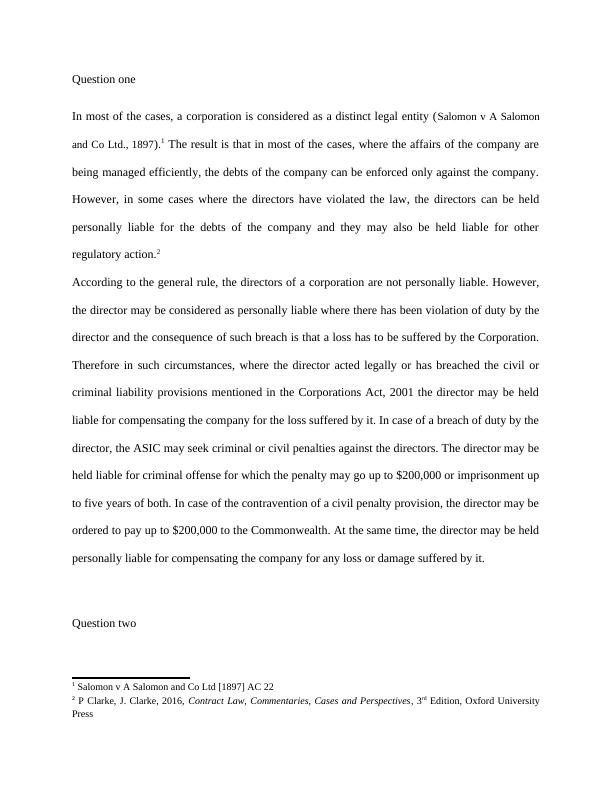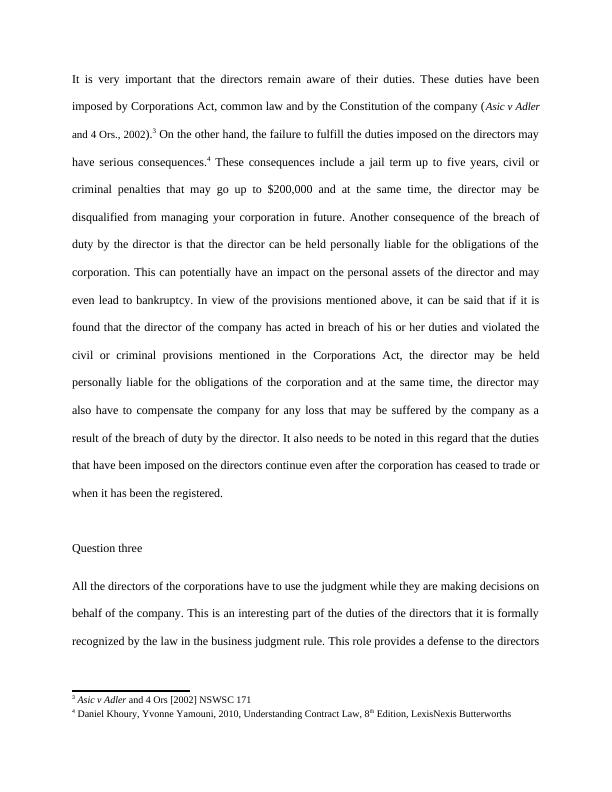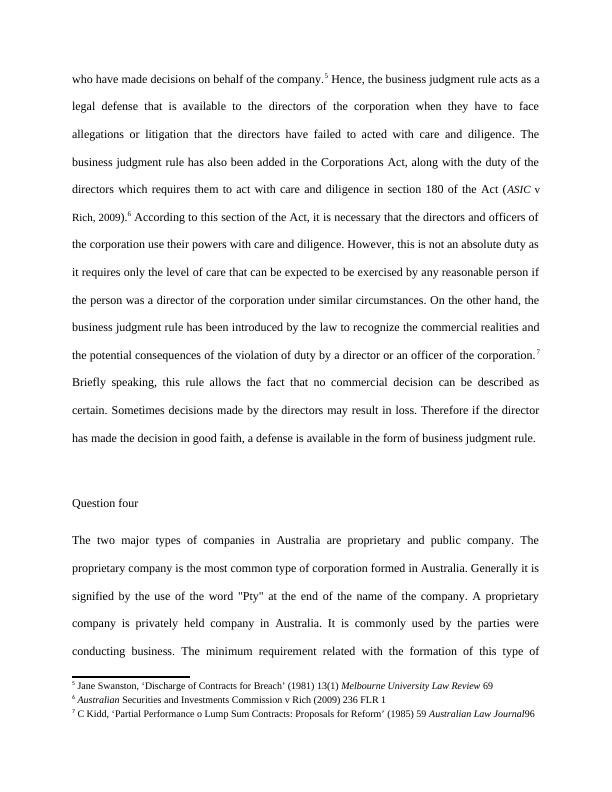Liability of Directors in Australian Corporations
Provide legal advice to directors of a company on various matters.
7 Pages2036 Words385 Views
Added on 2023-06-03
About This Document
This text discusses the liability of directors in Australian corporations, including personal liability, consequences of breaching duties, business judgment rule, types of companies, and legal remedies. It explains that directors may be held personally liable for the obligations of the corporation if they breach their duties or violate civil or criminal provisions. The text also covers the business judgment rule, which provides a legal defense for directors who make decisions on behalf of the company. Additionally, it explains the differences between proprietary and public companies in Australia and the legal remedies available to companies and shareholders in case of a breach of duty by a director.
Liability of Directors in Australian Corporations
Provide legal advice to directors of a company on various matters.
Added on 2023-06-03
ShareRelated Documents
End of preview
Want to access all the pages? Upload your documents or become a member.
Breach of Director Duties: A Case Study on Lilian and Gumpta
|9
|2068
|347
Director Duties and Violations: A Case Study Analysis
|10
|2300
|228
ASIC v Padbury Mining Limited: Violation of Director Duties
|12
|1112
|491
Corporate Law: Duties and Consequences for Breach by Directors
|7
|1815
|300
Violation of Director Duties in Corporate Law
|7
|2464
|293
Liability for Breach of Duties in Corporate Law
|11
|2638
|330



